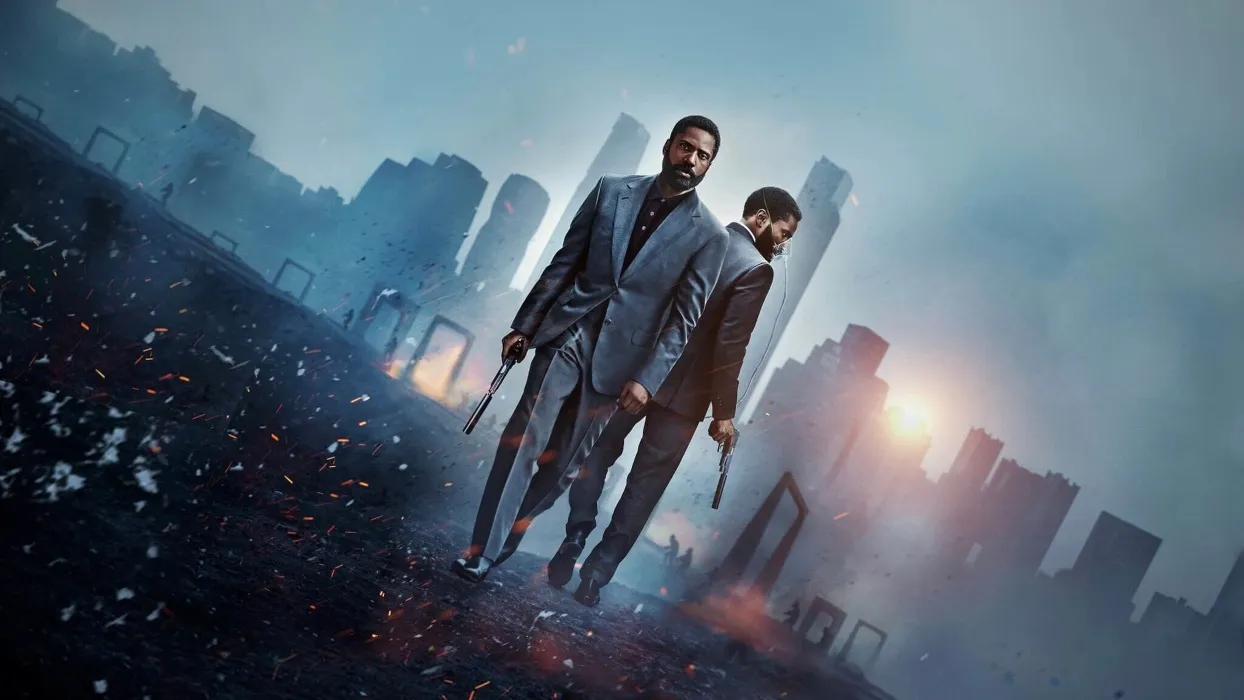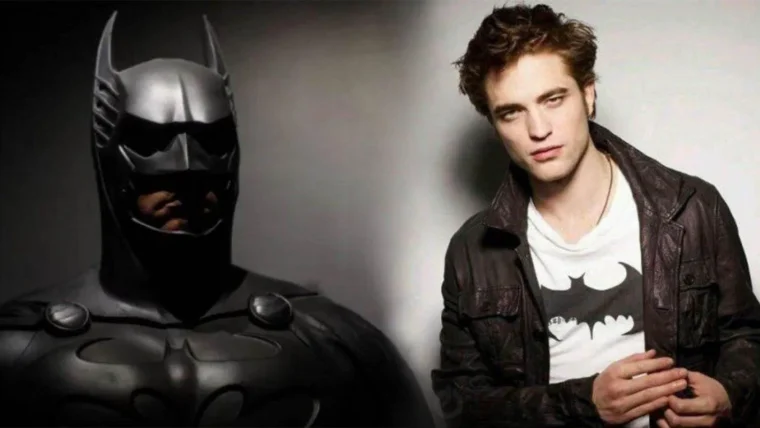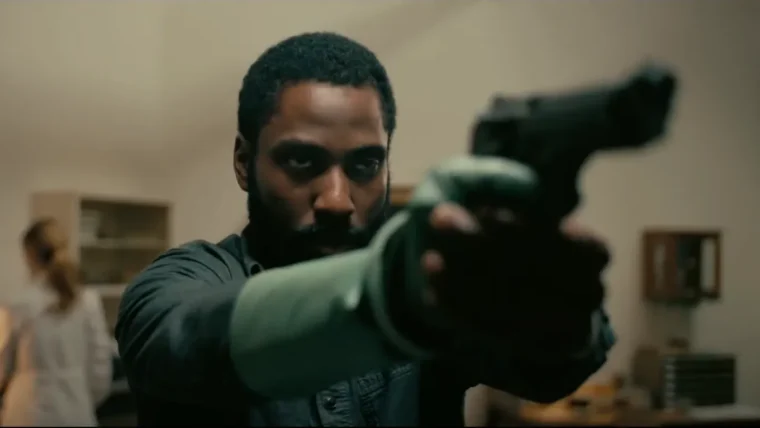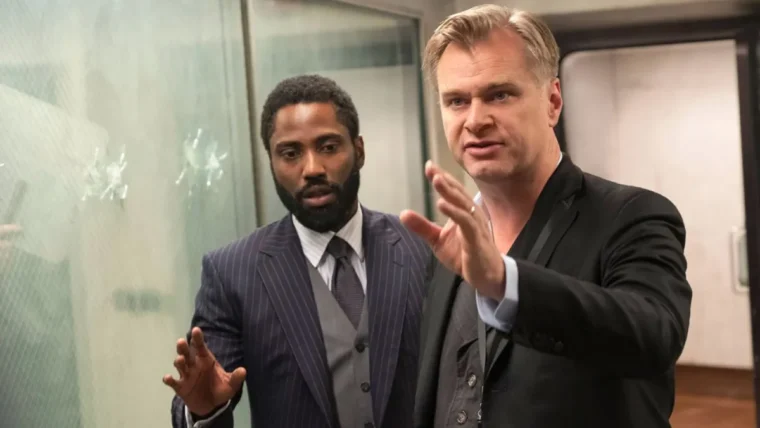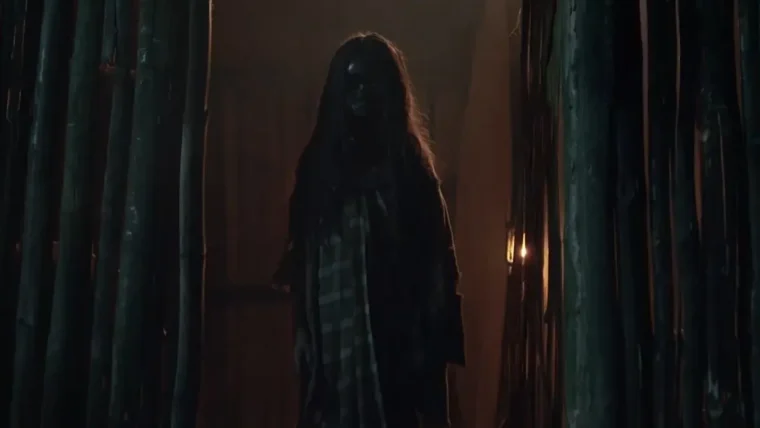It’s been 70 years since the world was introduced to Akira Kurosawa’s legendary crime film, Rashomon. A groundbreaking film that was the first to make use of the idea of non-linear storytelling. Little did Kurosawa know, decades from now, that his experimental narrative device would become the cornerstone of one the greatest filmmakers of the 21st century, Christopher Nolan. A visionary director, a talented writer and a masterful storyteller. The man’s disparate catalogue of work betrays his singular obsession with time. How it can be muddled in Memento. How the perception of it can be manipulated in Inception and The Prestige. How it can be destroyer in Interstellar and Dunkirk. In the past, I’ve speculated that Tenet would be Nolan’s ultimate cinematic expression of this thematic obsession. It’s finally here and it is one hell of a way kick-off the reopening of cinemas. Nolan, you beautiful bastard, you’ve beaten the virus!
The plot of the film follows John David Washington’s character, simply known as the Protagonist, as he attempts to prevent a global catastrophe. A deadly weapon has been uncovered by a sadistic Russian arms dealer, Andrei Sator and it threatens the very fate of history itself. One that uses the idea of “reversed entropy”. Now, the Protagonist with the help of a mysterious partner named Neil must race against time to stop Sator from erasing all of human existence. The only way to get Sator is through the arms dealer’s distant wife, Kat. The mystery is deep, the details irrelevant and the only weapon the Protagonist wields is ignorance.
As Dimple Kapadia’s Priya said in the film’s trailer, you need to start looking at the world in a different way. For this particular case, you need to start looking at your understanding of storytelling in a new light. As stated earlier, Tenet takes the idea of non-linear plots to the extreme and makes its structure as much of a character as Washington or Robert Pattinson. I’m not going to lie, there were moments in which Tenet had me scratching my head with regards to what was occurring on-screen. There were instances in which seemingly random encounters and events were playing out in the background while I was trying to pick apart the conspiracy and drama in the foreground.
Only near the halfway mark of the film, does the viewer began to see how all the seemingly chaotic elements fit into the film’s plot. Bit by bit, Tenet educates its audience how to adapt to its unconventional narrative before rewarding more keener pupils with satisfying emotional pay-offs and dramatic relevance. Can the film prove inaccessible to the average moviegoer at times? You bet your ass but at no point, does it feel like it condescends them. Rather, it works to capture your attention with gripping familial drama, exciting spy action and charming characters. Tenet isn’t an easy film, nor is does it always connote its plot in the most coherent of manners, but for those you are willing to put in the work, it is one of the greatest cinematic experiences of all time.
All this, of course, is achieved through the film’s stellar production quality. Nolan’s films have become famous for their trippy and elaborate action sequences. Scenes that incorporate practical effects, impressive stunt work a minimal CGI. We’ve long gushed over his films and the director’s relentless dedication in creating a sense of presence and scale in his films. Tenet has now officially set the bar for the rest for his catalogue thus far. In Inception, we saw how the director toyed with the idea of shifting space and movement to create his iconic hallway fight scene. Now, he takes that concept to a whole new level when he throws time into the mix. Out of the many stunning examples I could pick from, the most memorable for me was the film’s mind-bending car chase. I didn’t know whether I should have clapped or vomited.
The real stars of Tenet are Hoyte van Hoytemaand’s cinematography and Jennifer Lame’s editing. Holy shit is this a good looking film. Those tight corridor shots that lean into the characters’ shoulders. The sweeping panoramic landscape views before the camera descends into the timey-limey chaos. Then, there are the “time-inversion” scenes. Make no mistake, it takes an eagle eye and a zen-like focus to know when to savour the snap and crackle of a fresh explosion before pulling it back in place. Watching a fiery blast swallowed up by the passage of time in reverse. It’s all set to a brilliant score by composer, Ludwig Göransson, who is quickly becoming a rival to Nolan’s frequent musical collaborator, Hans Zimmer.
John David Washington’s Protagonist was a welcome change of pace from the dour, brooding leading men we’ve come to expect from a Nolan affair. His rendition of a suave American agent trying to snake through the world of international espionage is a refreshingly grounded one. Only after the film’s entirety do I begin to understand the reasoning behind Nolan’s omission of the Protagonist’s name. He is our conduit, our spirted and human guide through the intimidating world of quantum physics and speculative science fiction. We don’t need to be bogged down with details such as names and background history. All that matters is the character’s presence, wit and humanity on-screen. This is a page taken out of 2017’s Dunkirk, I’m sure.
The Batman‘s Robert Pattinson stars alongside Washington as his enigmatic partner, Neil. Though used sparingly, Pattinson’s Neil was a delight in every scene he was in. The actor has great chemistry with Washington, giving us the impression that the two have been friends for years in spite of their brief conversations. Elizabeth Debicki gives an emotionally charged performance as Sator’s wife, Kat. The weakest link of Tenet, though, was its villain Andrei Sator. Kenneth Branagh does an admirable job with the material given to him but I wish there was more to his character than abusive control-freak. I understand that Sator’s selfish desire in the present is meant to be juxtaposed to our hero’s desire to save the past and future. That being said, he’s just not a very compelling foil.
Christopher Nolan’s Tenet is everything art critics and cinephiles want in their summer blockbusters. Gorgeous visual splendour accompanied by bold, thought-provoking ideas that leap off the paper onto everything they touch. Tenet is everything I loved about 2010’s Inception and more. Its films like this that keep those cinema lights burning and popcorn machines winding. The awe, the spectacle and that once-in-a-lifetime feeling of being part of something bigger than yourself. It isn’t perfect mind you but it is certainly groundbreaking. Be sure to check out at Tenet at your local cinemas today! If you can afford to, please watch it in IMAX, it is glorious.
4.5/5- Christopher Nolan’s Tenet is everything art critics and cinephiles want in their summer blockbusters. Gorgeous visual splendour accompanied by bold, thought-provoking ideas that leap off the paper onto everything they touch. It isn’t perfect mind you but it is certainly groundbreaking.

